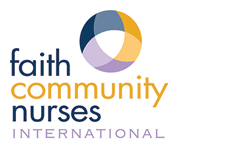Abstract
Abstract
Background: Cardiovascular disease is the leading cause of death in the United States. Many cardiovascular risk factors are modifiable. Community engagement by Faith Community Nurses in church settings can help patients reduce risk.
Problem/Purpose: Faith Community Nurses at a Philadelphia church identified a need for cardiovascular lifestyle risk modification education and planned this as the inaugural topic of its new health outreach program. The project purpose was to evaluate effectiveness of the program in increasing knowledge of cardiovascular risk modification, increasing level of readiness to make self-identified lifestyle changes, and to evaluate the program format as a potential model for future programs.
Methods: Educational materials as structured by the Ohio State University Million Hearts program were presented in the context of the faith community setting. Participants received group instruction, a personal lifestyle risk assessment with evidence-based strategies targeting risk modification, individual telephone follow up for two weeks, and a second group educational session. Intended outcomes were increased knowledge level regarding cardiovascular risk modification and increased readiness to make lifestyle changes as a result of this pilot program. Results: Pre and post intervention surveys evaluated knowledge and readiness to change. McNemar chi-square analysis demonstrated statistically significant improvement of cardiovascular knowledge test scores greater than 90% post-intervention. Post-program surveys produced a favorable overall evaluation program effectiveness and promoted sustainability.
Keywords: cardiovascular risk, heart disease risk, faith community nursing, Million Hearts, health behavior modification, behavior change, readiness to change, Transtheoretical Model
First Page
25
Included in
Community Health and Preventive Medicine Commons, Public Health and Community Nursing Commons, Public Health Education and Promotion Commons
